
Africa

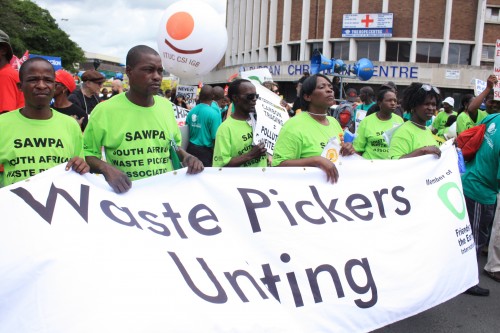
South African waste pickers call on the government to build recycling facility
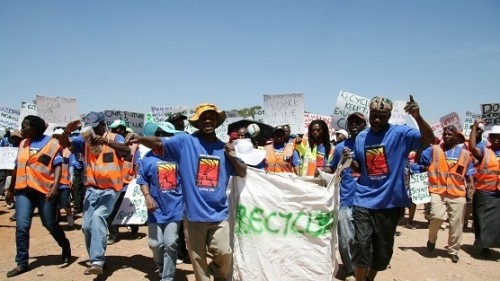
Zero waste approach is a must in South Africa
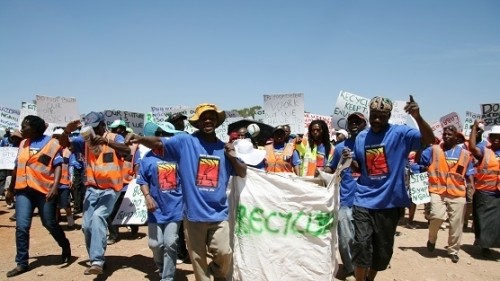
Promote climate jobs and deny proposed waste-to-energy incinerator in Kempton Park, South Africa
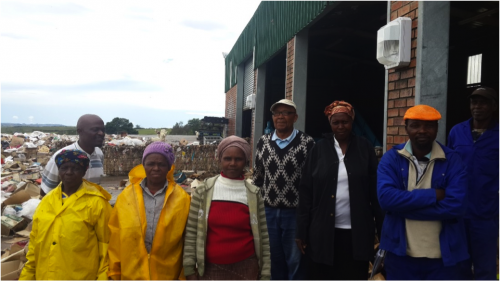
Four pilot projects in the works: an update from the South African Waste Pickers’ Association
SAWPA has been in negotiations with government at all levels about their recognition, particularly receiving recognition in some municipal areas that has since resulted in new projects on the ground. There are various projects in which SAWPA members are involved.
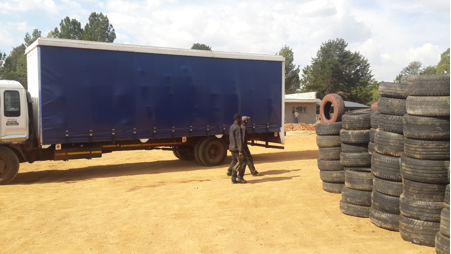
South African waste pickers registering as tire collectors
The South African Waste Pickers’ Association (SAWPA) are in the process of registering with REDISA as tyre collectors and/or transporters. Waste pickers are already in the business of recycling and this plan is just adding one more waste stream to collect.
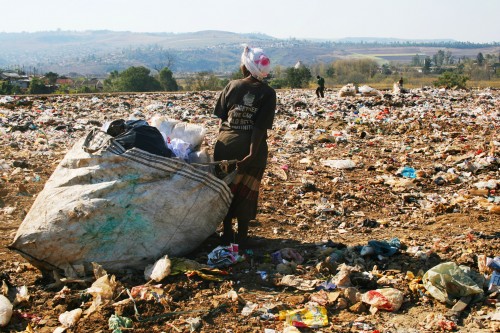
Msunduzi municipality puts job creation project on back-burner
Instead of supporting the local social economy, Msunduzi Municipality has signed an agreement with Wildlands Conservation Trust to take all recyclable waste from Pietermaritzburg.
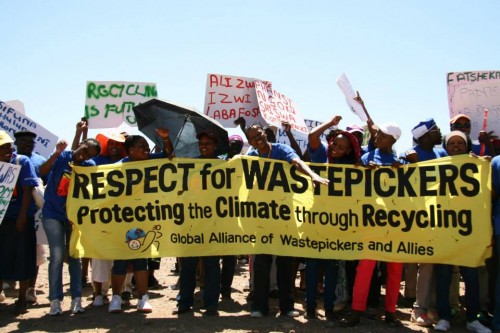
South African waste pickers call on their government to stop incineration projects
SAWPA came together in November to object to the proposal by EnviroServ to construct a waste incineration facility at the Chloorkop waste site, calling on the government to deny EnviroServ permission to build a waste incinerator facility at Chloorkop.
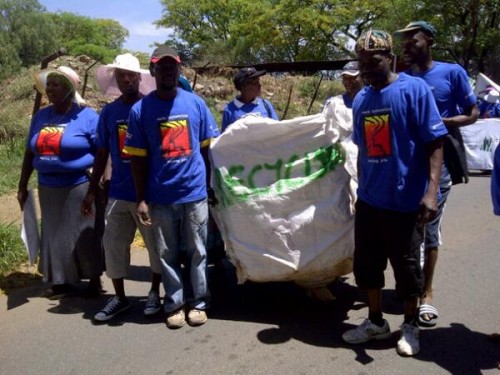
Nov. 8 march against incineration: Waste incineration is wasting jobs in South Africa!
Despite South Africa’s waste management legislation stipulating that incineration be the last resort in waste disposal, approximately 300 waste pickers on the Chloorkop landfill in Kempton Park are set to lose their jobs as a result of Enviroserve’s proposed waste-to-energy incinerator.
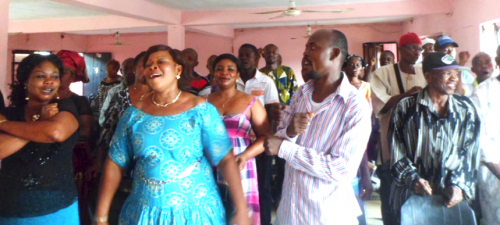
Update from Nigeria: “An irreversible organizing process has been set in motion”
A report from the WIEGO/FIWON organizing project in Nigeria, which is in its final phase, says progress is being made in the seven target cities of the project. Meetings among waste pickers became regular with some centers holding meetings once or twice a month.
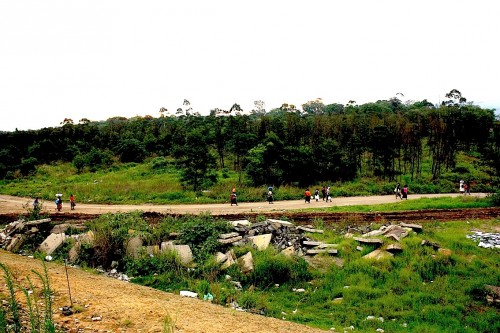
WIEGO and Waste Pickers Speak at Joburg Waste Summit
On May 15 and 16, 2013 over 400 people attended the Joburg Waste Summit, hosted by the Johannesburg Council and its waste management company Pikitup. The Council and Pikitup urgently need to find ways to minimize waste going to landfill, and the Summit was called to explore how to do this. WIEGO and SAWPA argued that landfill reclaimers need to be included in all discussions and new recycling initiatives.

South African Waste Pickers Association National Meeting
From June 19th to the 21st, the South African Waste Pickers Association (SAWPA) held its national meeting in Johannesburg. 80 waste pickers who are serving as landfill coordinators attended, from all over the country. There were seven waste picker leaders from different provinces. Facilitators from three organizations were there to support the meeting. “There has been progress since the mid-2000s,” said Musa Chamane, a waste campaign manager with GroundWork, an organization that works closely with SAWPA. “Conditions have been slowly changing for the better.”

Learning from the catadores: the South African government visits the waste pickers of Brazil
In April, officials from the South African Department of the Environment were in Brazil and Colombia to learn about inclusive solid waste management. They visited waste pickers’ movements and cooperatives and spoke with NGOs and city officials. “We are particularly encouraged by the participatory aspects. This is something that resonates with South Africans,” Cobbinah said.

The South African government visits Brazil and Colombia to learn about participatory waste management
In the beginning of April of this year, officials from the South African Department of the Environment (chemical and waste management branches) were in Brazil and Colombia to learn about inclusive solid waste management.

March 1st – Global Waste Pickers’ Day celebrated in the Democratic Republic of the Congo
A meeting for exchanging and sharing experiences was held on March 1st, 2013, in Kinshasa, Democratic Republic of the Congo in honor of Global Waste Pickers’ Day. Leaders of RECRED, the nascent waste picker’s network in the DRC, got together to discuss three main issues: network activities, health care, and how to strengthen the sector. It was noted that since the first steps towards a national network of waste pickers were taken in October of 2012, a few associations have been cooperating and have made contact with local authorities. The participants discussed the need for appropriate protective equipment at work as well as health insurance. There is a need to create cooperatives for access to microcredit, as well as workspace for selling and storing materials collectively. This meeting allowed members of RECRED to consolidate in order to invite other waste pickers who work individually to join the network.
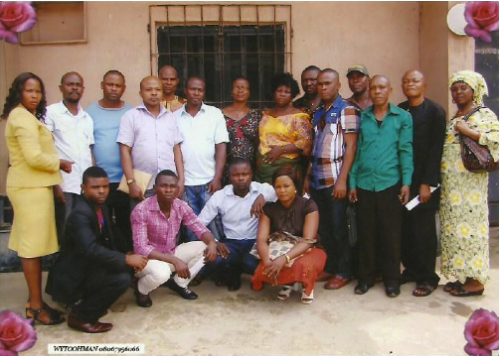
Nigerian waste pickers are organizing!
The Second Organizing Meetings with Waste Pickers was held in seven target cities in Nigeria. The purpose of the meetings is to support waste pickers’ organizing so they can better represent and protect themselves and have a platform to relate with members of the public, the government, waste dealers and other end users in a more organized way.
Victory in Bangalore, India: Waste pickers to receive social security
The 15,000 waste pickers of Bangalore, India, had an end of the year victory. Bruhat Bangaluru Mahanagara palike (BBMP), the local government, is going to provide social security benefits to the waste pickers.
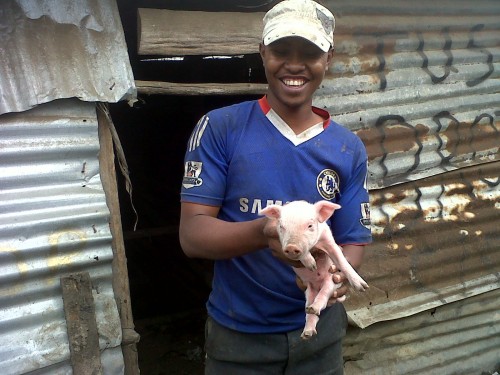
Raising pigs in Kenya: Dandora waste pickers have a pig project
As part of the organizational efforts from the Kenyan Alliance of Waste Pickers, a group from Dandora, Kenya, has started a project to raise pigs.
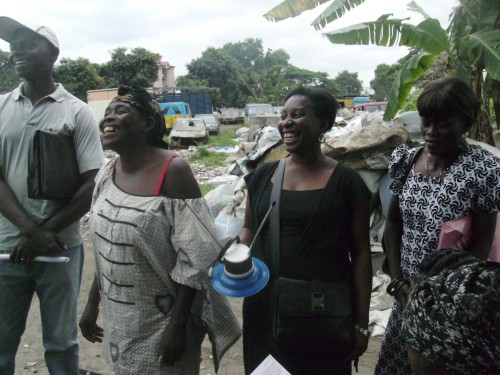
Waste pickers’ workshop in Kinshasa, DRC
The second round of a workshop to support waste pickers organizing in Kinshasa, Democratic Republic of Congo, was held in January of 2013. The Congolese Women’s Right League, a StreetNet affiliate, with support from WIEGO, organized an event that brought together 30 waste picker delegates from Bandundu, Bas Congo and Kinshasa.

Kenyan Pickers Doing it For Themselves
Waste pickers in Kenya are fighting to be heard. It has been a slow process of building solid organisation but it is showing results.
In the towns of Nakuru, Mombasa, Kisumu and Nairobi many people view pickers as trouble makers, especially as gangs sometimes operate from dumps. In fact the waste pickers are earning an honest living by collecting, sorting and selling metals such as aluminium, copper and iron as well as plastic bottles and containers, cloth, bones and organic waste.

